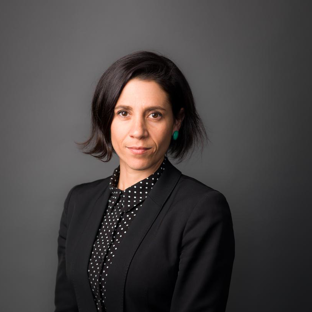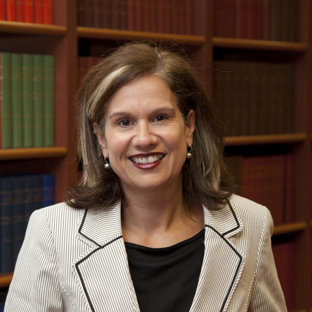It’s 25 years since the Royal Commission into Aboriginal Deaths in Custody handed down its final report. The commission investigated the deaths of 99 Aboriginal and Torres Strait Islander people, generated 200 shelf metres of records and made 339 recommendations. One of the key findings, was that a reduction in rates of imprisonment would mean a reduction in risk of deaths in custody. But Indigenous people have doubled as a proportion of the prison population since the time of the commission – and many are still dying in custody today.
In the preface to the commission’s final report, the commissioners wrote that the issues underlying Aboriginal conflict with the law could not be solved by police and Aboriginal people alone. ‘The key is to be found in the hearts and minds of all Australians,’ they wrote.
In this discussion, our panel of Aboriginal and Torres Strait Islander leaders and human rights experts will discuss the significance of the Royal Commission, its findings and implications and the success and failings of policies implemented in its aftermath. What has worked? What hasn’t? And how can our governments shift the hearts and minds of all Australians?
Featuring

Karly Warner
Karly Warner is a proud Tasmanian Aboriginal woman with connections to the Cowen and the Lockley families. She is executive officer of the National Aboriginal and Torres Strait Islander Legal Services and former chair of the Administrative Law and Human Rights Executive Committee at the Law Institute of Victoria. She is also an advisor on the Aboriginal Advisory Council at Lander and Rogers. Karly has a passion for human rights and a demonstrated experience fighting for justice for Aboriginal and Torres Strait Islander Peoples.
Previously, Karly was a practicing lawyer at the Victorian Aboriginal Legal Service, with experiencing working across criminal, civil, children, youth and family law. Karly has a Bachelor of Laws from Monash University and has previously worked in private practice and within a legal policy role for the now Victorian Government Department of Justice and Regulation. She was the president of the Tarwirri Indigenous Law Students and Lawyers Association of Victoria and continues to serve as an active committee member.

Ruth Barson
Ruth Barson has worked to advance the human rights of people enmeshed in the criminal justice system for over a decade. She leads the Human Rights Law Centre’s work advocating for the rights of Aboriginal and Torres Strait Islander peoples, and children and adults in jails across Australia.
Ruth’s recent work includes High Court challenges to excessive police lock-up powers; and state and territory Supreme Court challenges to unfair imprisonment and detention laws. Ruth has also led the Centre’s advocacy in relation to youth justice; deaths in custody; inhuman conditions in detention; and racial inequality in the criminal justice system.
Before joining the HRLC, Ruth worked as a senior policy lawyer at the Centre for Innovative Justice where she delivered a comprehensive report on reforming the criminal justice system’s response to sexual assault. Prior to this, Ruth spent over four years working with the Aboriginal Legal Services in Western Australia and in the Northern Territory where she focused on youth justice and prisoner rights. She has also worked as a criminal defence lawyer with Victoria Legal Aid and a legal advisor to government.
Ruth’s international experience includes supporting the work of the Supreme Court Chamber of the Extraordinary Chambers in the Courts of Cambodia – the United Nations backed court responsible for prosecuting senior members of the Khmer Rouge. She has consulted to Open Society Foundations on strategies to reduce the risk of torture and mistreatment in police custody and received a scholarship to attend Open Society Foundations’ Strategic Human Rights Litigation summer school.
Ruth has a Masters of Laws (with a focus on criminology) from the University of Sydney and a Masters of International Human Rights Law from the University of Oxford. She is currently completing a community research fellowship with the University of Melbourne where she is investigating the over use of solitary confinement in Australia.
Ruth is on the board of the Women’s Legal Service Victoria and is a member of the Law Institute of Victoria’s Human Rights Committee.

Shane Duffy
Shane is a descendant of the Kalkadoon people from Mount Isa in North West Queensland. Shane has worked in the human services industry for over two decades, serving as the chief executive officer for the Aboriginal and Torres Strait Islander Legal Service (ATSILS) in Queensland for the last nine years.
In addition to being the Chair of NATSILS (the national body for ATSILS), Shane has also been the Australian Legal Assistance Forum (ALAF) chair, and chair for the Queensland Aboriginal and Torres Strait Islander Human Services Coalition (QATSIHSC). Shane's experience broadly covers local, regional, state, national and international advocacy on issues that impact disproportionately and adversely upon his people.
Shane has been committed to social justice for his family and his people from a very young age whilst growing up in Mount Isa. His own life experiences of racism and prejudice that impacted on his daily upbringing have moulded the journey he has taken thus far, even though he didn't truly recognise and understand this fact until his early 20s.

Rose Falla
Rose Falla is a Wotjobaluk/Wemba Wemba woman born and raised in Melbourne. She was educated in the northern suburbs of Melbourne. Rose has enjoyed a distinguished legal career, culminating in her appointment as Magistrate in 2013. Rose is the first Indigenous Magistrate appointed in the state of Victoria.
Following roles at the Consumer Affairs and a number of other government and non-government agencies, Rose commenced her law degree at Deakin University. Coming from western Victoria’s Wotjobaluk/Wemba Wemba people, Rose’s career has intersected with her cultural heritage a number of times, including her time working at the Aboriginal and Torres Strait Islander Commission, the Office for Aboriginal and Torres Strait Islander Health and the Koorie Heritage Trust.
After completing her law degree, Rose worked as a Legal Officer at the Department of Justice and was responsible for the establishment of the first Koorie Courts in Victoria. Her career has since seen her perform roles within the Office of Public Prosecutions such as a senior Solicitor, Acting Deputy Directorate Manager of Complex Crime and associate to the Director of Public Prosecutions.
